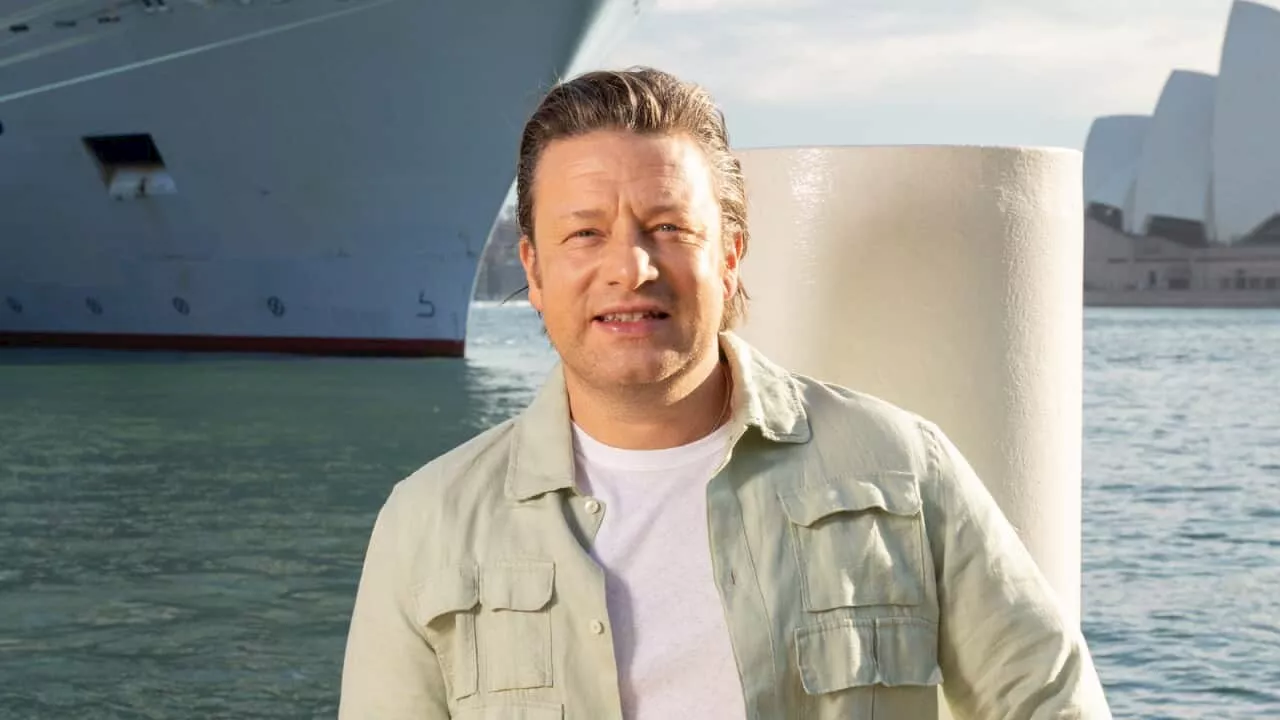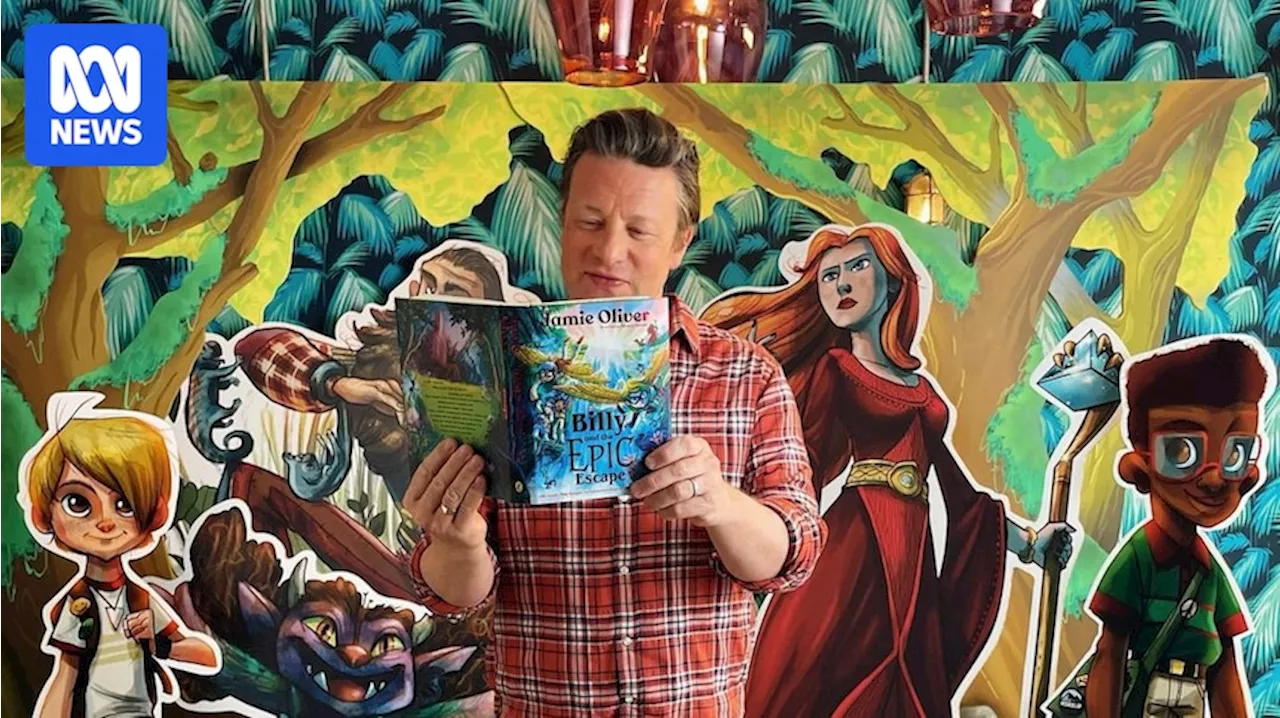Jamie Oliver’s novel has been withdrawn due to its ‘damaging and disrespectful’ portrayal of First Nations people. Here is how non-Indigenous writers need to approach it: First Nations people first.
First Nations authored literature continues to excite and educate Australian readers. Non-Indigenous writers are grappling with how to craft inclusive fiction that does not impinge on Indigenous knowledge, beliefs and rights of self-representation. Inclusive fiction is central to a representative literary landscape. In settler colonies such as Australia, this comes with the danger of cultural appropriation.
The National Aboriginal and Torres Strait Islander Education Corporation told the Guardian the book was damaging and disrespectful, and criticised Oliver’s “erasure, trivialisation, and stereotyping of First Nations peoples and experiences”. But releasing a book that draws the ire of NATSIEC should never happen in the first place.
Often, she writes, non-Indigenous authors focus on victimhood and portray First Nations people as “distant, damaged, or dead” rather than as “ordinary living humans”. Many First Nations writers, such as Alexis Wright, Kim Scott, Saunders and John Morrissey, reject the term magical realism altogether for First Nations writing across all genres.
Jeanine asks: what is at stake for First Nations peoples when these images of us and our cultures are misrepresented and misinformed by non-Indigenous people? And what is at stake when the stealing that the nation was founded in continues as our stories continue to be taken without cultural protocol – which involves permission, consultation and collaboration with First Nations communities before writing even starts? How much damage does this do?5 tips for non-Indigenous writers Jeanine wrote a...
Australian Writing First Nations Jamie Oliver John Morrissey Kim Scott Melissa Lucashenko Mykaela Saunders Representation
Australia Latest News, Australia Headlines
Similar News:You can also read news stories similar to this one that we have collected from other news sources.
 Jamie Oliver apologises after his children’s book is criticised for ‘stereotyping’ First Nations AustraliansPublisher takes responsibility for the failure to consult Indigenous groups, who say the fantasy novel trivialises complex and painful histories
Jamie Oliver apologises after his children’s book is criticised for ‘stereotyping’ First Nations AustraliansPublisher takes responsibility for the failure to consult Indigenous groups, who say the fantasy novel trivialises complex and painful histories
Read more »
 Jamie Oliver withdraws book amidst accusations of First Nations stereotypesOliver and Penguin Random House UK conceded that no consultation with any Indigenous organisation, community or individual took place before the book was published.
Jamie Oliver withdraws book amidst accusations of First Nations stereotypesOliver and Penguin Random House UK conceded that no consultation with any Indigenous organisation, community or individual took place before the book was published.
Read more »
 Jamie Oliver pulls book over complaints it ‘stereotyped’ Indigenous AustraliansCelebrity chef Jamie Oliver has issued an apology and pulled his new children’s fantasy book from shelves after it sparked criticism over its 'stereotyping' and 'triviliasing' depiction of Indigenous Australians.
Jamie Oliver pulls book over complaints it ‘stereotyped’ Indigenous AustraliansCelebrity chef Jamie Oliver has issued an apology and pulled his new children’s fantasy book from shelves after it sparked criticism over its 'stereotyping' and 'triviliasing' depiction of Indigenous Australians.
Read more »
 Jamie Oliver pulls children’s book from shelves after criticism for ‘stereotyping’ Indigenous AustraliansBilly and the Epic Escape to be withdrawn worldwide after First Nations groups say fantasy novel trivialises complex and painful histories
Jamie Oliver pulls children’s book from shelves after criticism for ‘stereotyping’ Indigenous AustraliansBilly and the Epic Escape to be withdrawn worldwide after First Nations groups say fantasy novel trivialises complex and painful histories
Read more »
 Jamie Oliver pulls children's book after criticism for 'stereotyping' Indigenous peoplesThe British celebrity chef has apologised after Australia's peak Aboriginal and Torres Strait Islander education body said the fantasy novel contributed to 'erasure' and 'trivialisation' of 'First Nations peoples and experiences'.
Jamie Oliver pulls children's book after criticism for 'stereotyping' Indigenous peoplesThe British celebrity chef has apologised after Australia's peak Aboriginal and Torres Strait Islander education body said the fantasy novel contributed to 'erasure' and 'trivialisation' of 'First Nations peoples and experiences'.
Read more »
 Celebrity chef Jamie Oliver pulls children's book after criticism for causing offence to Indigenous AustraliansAn Australian subplot in Jamie Oliver's new children's book has been accused of engaging in cultural appropriation and contributing to 'erasure, trivialisation, and stereotyping of First Nations peoples and experiences'.
Celebrity chef Jamie Oliver pulls children's book after criticism for causing offence to Indigenous AustraliansAn Australian subplot in Jamie Oliver's new children's book has been accused of engaging in cultural appropriation and contributing to 'erasure, trivialisation, and stereotyping of First Nations peoples and experiences'.
Read more »
